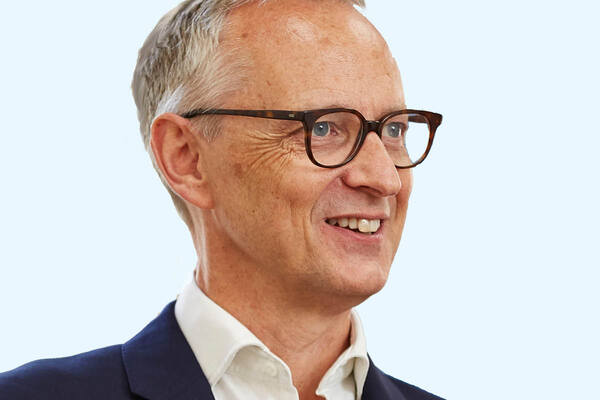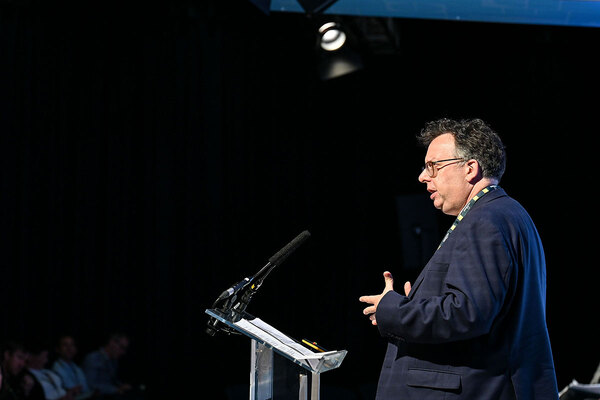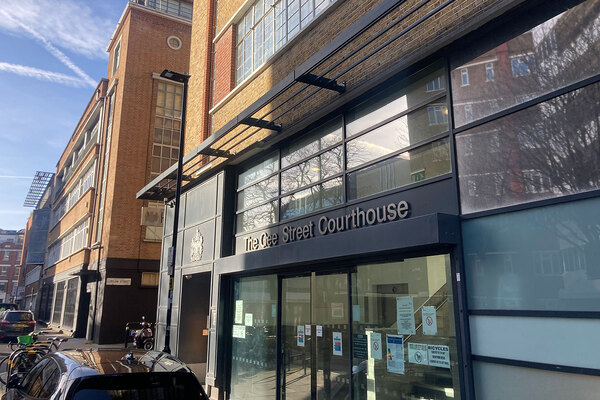
Making the decision to be out at work
Hannah Harvey explains how she has struggled with the decision to be out at work – and how liberating it has been
When I started to write this article, I found myself second-guessing if it was a good idea. And, having decided that I should, I then reflected on why I paused to consider writing it.
It’s always difficult to write about things that are so deeply personal. How much should I share? What am I prepared to share? And actually for me, often, what impact will it have on my life, both personal and professional?
I would love to be able to say that sharing my sexuality has never had an impact, but that is simply not the case. It’s a fine balance of wanting to be a positive role model, but also sometimes not wanting to go over old ground that can be tough and leave you feeling exposed and vulnerable.
“The pandemic has helped break down barriers, revealed our authentic selves and liberated us in some ways, as we have had to lower our masks and strip back bare our work personas to juggle and make it all work”
As I share my journey, experience and learning, I would urge everyone to remember that whatever our story, our diverse lens, or vulnerability, hang on to one thing: authenticity. The pandemic has helped break down barriers, revealed our authentic selves and liberated us in some ways, as we have had to lower our masks and strip back bare our work personas to juggle and make it all work.
So here goes, this is me writing about my experience in the hope that we can all learn from it and keep making strides forward towards true inclusivity.
Every time I started a new job, it was like coming out all over again. Worrying about the reaction of those around me, feeling sick with nerves, hoping the organisation was an inclusive one, the desire to over-achieve so that people can see you got the position on merit, not because of a tick-box exercise in diversity, and wondering how many times I would be asked what my husband did for a living, just because I had children.
And then the uncomfortable pause that would often follow as I wrestled with:
a) Should I correct them and say “wife”, or wait to get to know them better?
b) If I don’t correct them, how will I be able to be my true self?
c) Avoid answering the question with some deflection technique I perfected over the years.
In my early career, I would have always gone with option c.
“I have found as I have become more comfortable with who I am and learnt to feel happy in my own skin, the impact on my ability to lead effectively without fear of discovery has been liberating”
This was often because I grappled with my own insecurities about what people would think, how they would act or how invariably it would be a whisper that went around the organisation about the new girl, which had started something like “oh by the way, don’t you know she’s a lesbian?”.
Now I always go for option a. I basically take control of the narrative. After all, it’s my story to tell.
I have found as I have become more comfortable with who I am and learnt to feel happy in my own skin, the impact on my ability to lead effectively without fear of discovery has been liberating. I no longer feel the need to hide my wife and four children from my work life and an honest conversation with someone from the start is often as liberating for them as it is for me.
They are an important part of who I am, and to hide that from my organisation would be a disservice to the people I work alongside and have the privilege to lead. I have grown to believe that through always worrying and expecting the worst, I was not giving people the opportunity to ask questions – and questions, in my opinion, are essential. It is how we will continue to break down the barriers that too many people still have to overcome.
After all, I want my colleagues to trust me and be inspired by me. If I can’t share this fundamental part of who I am, can I truly be the leader I want to be? How can I lead by example talking about honesty and transparency and a brighter future if I am not prepared to live it? How can we learn and educate if we never challenge the organisations we work within?
Leadership is often about showing an organisation what it needs to be and what we want it to achieve, as well as giving it the tools to get to the destination. I can think of no better way of doing that than being my authentic self.
Hannah Harvey, executive director of operations, Saffron Housing
Sign up for our daily newsletter
Already have an account? Click here to manage your newsletters













